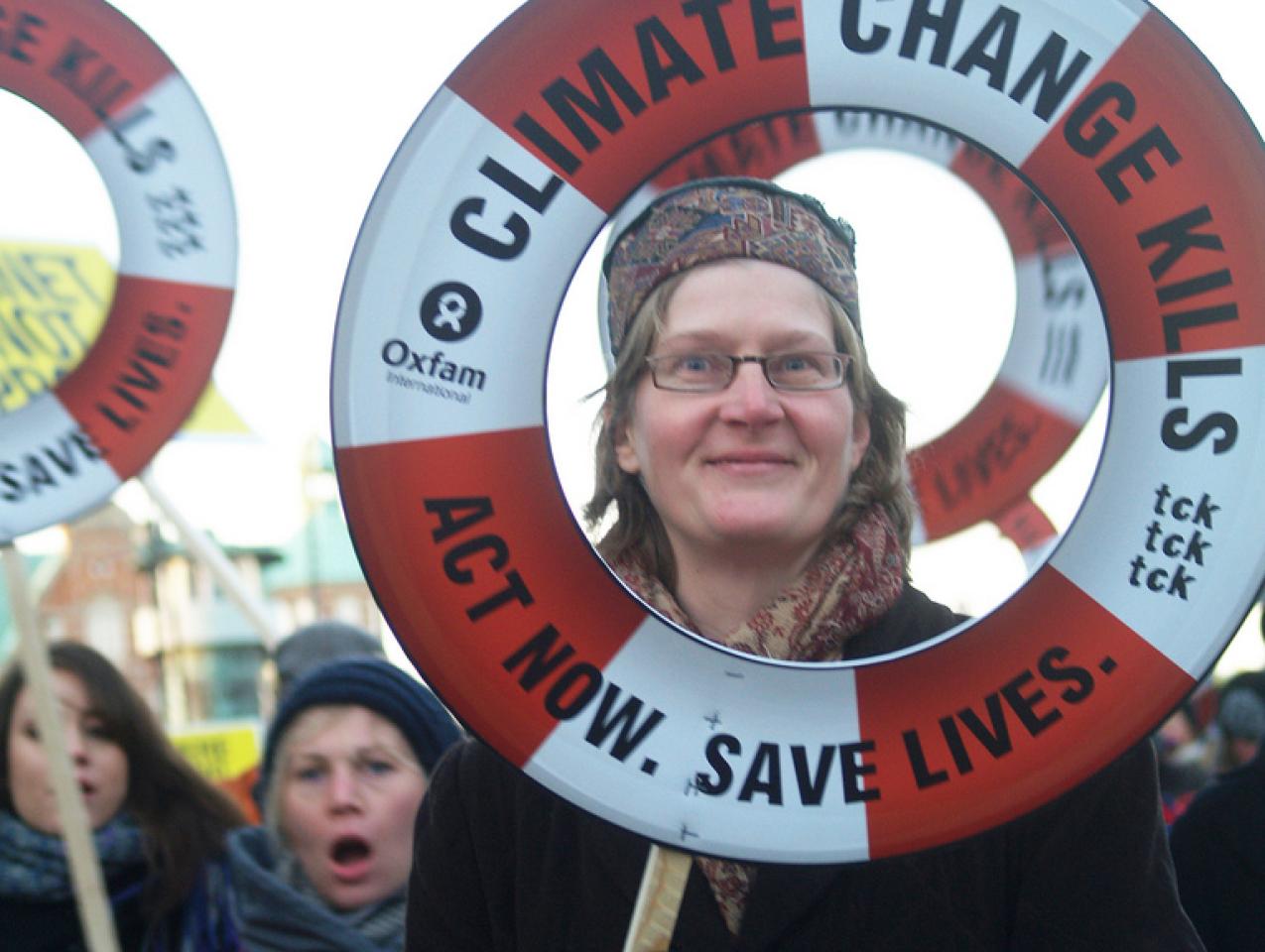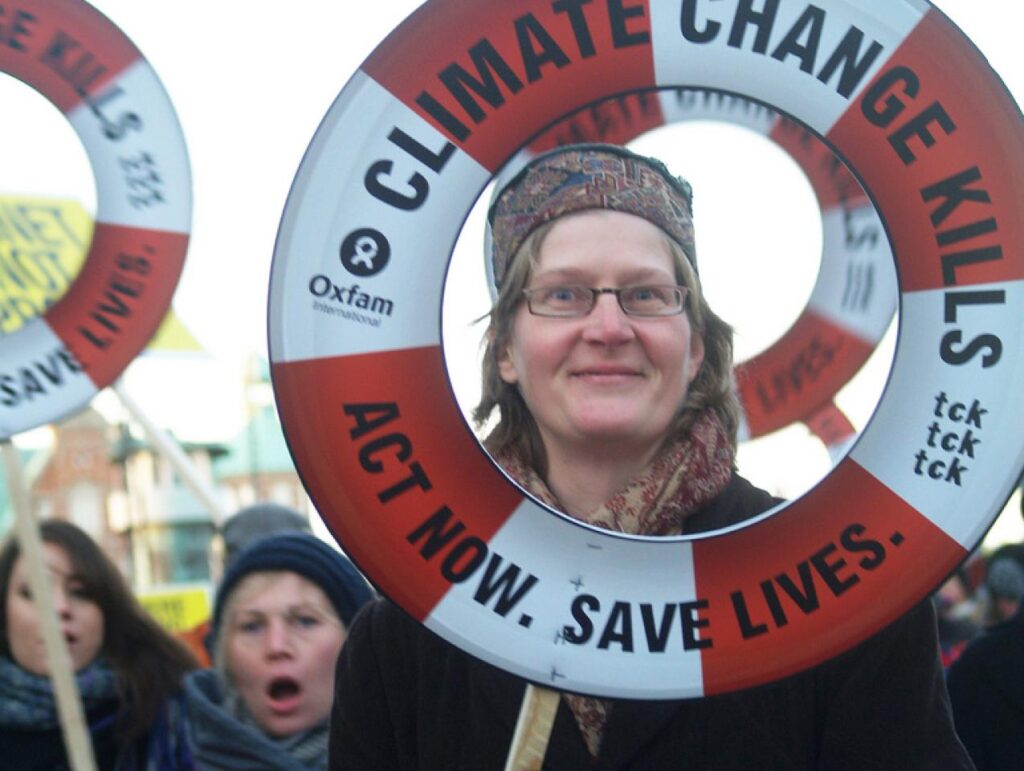
“We have 500 days to avoid climate chaos.”
— French Foreign Minister Laurent Fabius, 2014
IN elementary school, I learned that the world was overpopulated, which we were told would soon lead to a global cataclysm. We were also taught that our insatiable need for paper was depleting trees, and that once they were gone, doomsday would follow.
As a wise man once said, the problems we anticipate for the future are usually not the ones we actually face.
Today, a declining population is a major problem for many countries, including and especially China. Meanwhile, the world is increasingly going paperless, reducing the demand for cutting trees.
Climate change, however, remains the apocalypse of choice for many of us. The supposed “solutions” reek of religious penance. We must be content with less. We must forsake convenience. We must abstain from economic growth. We must give up high-tech gadgets — and gasoline-powered cars and air travel. Only the most unappetizing and monotonous food items are acceptable for us to eat. Not taking daily hot showers is highly recommended. Destitution is a virtue.
As Peter Schwartz would put it, we are told — no, we are expected — to surrender our comfort, our well-being, our selves on the altar of environmentalism as defined by the high priests of climate change. We must neglect our present-day needs to “solve” a “problem” that lies in a far distant future. We should, to paraphrase Schwartz, stop caring about our desire to be happy and start worrying about how to please Greta Thunberg and Al Gore and their “snarling demands for deprivation.”
Steven Koonin served as undersecretary for science of the Department of Energy in the Obama administration. In his 2021 book, “Unsettled: What Climate Science Tells Us, What It Doesn’t, and Why It Matters,” he acknowledged that “the globe is warming, and that humans are exerting a warming influence upon it. But beyond that…‘I don’t think “The Science” says what you think it says.’ ”
Other scientists and writers have questioned, and continue to question, the end-of-days “science” of climate change — see, for example Rupert Darwall’s excellent “The Age of Global Warming; A History” (2013). But like other polarizing topics, this is an issue that will likely remain unresolved in the foreseeable future.
Why? Primarily because, as in most controversies, our politics will steer us toward the side of the argument we support.
In the CNMI’s case, of course we must protect its environment, which is the centerpiece of the islands’ only industry, tourism. And of course, the CNMI should find more environmentally friendly and preferably less expensive sources of energy, etc. etc.
But voters: beware of politicians and “experts” who claim to support “science” while insisting that their version of “science” is beyond dispute and the final word on the subject. As the late great Charles Krauthammer, a man of science, once noted: “There is nothing more anti-scientific than the very idea that science is settled, static, impervious to change.”
Today, many of those who tell us to “trust in science” refuse to do so whenever science may contradict what they believe about climate change. Those who are open minded about so many things — nonbinary pronouns and former men competing in women sports — are not so broad minded when it comes to their cherished notions about climate change. And those who like to invoke “hope” in one of the most hopeless of human endeavors — politics — have no use for it when it comes to climate issues.
For them, “trust the science” means: it’s settled so you and I have to shut up and agree with them. Incidentally, their preferred “solutions” are restrictions, prohibitions, fee-and-tax hikes and other similar “incentives” and programs concocted by all-knowing politicians and their similarly minded “experts.” These “green” measures will be rammed down the public’s throats — until a fed-up electorate finally throws the “scientific” bums out.
But there is a less painful and less costly way to address climate change. To quote retired Washington Post columnist Robert Samuelson, we should stop portraying this issue as a morality tale because, as Peter Schwartz has pointed out, it is a technological problem, and it can be solved only by technology.
No one knows what the Earth’s climate will be like at the end of this century, Rupert Darwall wrote. What we do know is that the modern market-based economy, which has lifted humanity to unprecedented prosperity, is more than capable of producing technologies that can mitigate the negative effects of climate change, without requiring us to live in caves.
In his outstanding book, “Factfulness,” Swedish physician and academic Hans Rosling wrote: “Fear plus urgency make for stupid, drastic decisions with unpredictable side effects. Climate change is too important for that. It needs systematic analysis, thought-through decisions, incremental actions, and careful evaluation.” He reminds us that “the future is always uncertain to some degree. And whenever we talk about the future we should be open and clear about the level of uncertainty involved. We should not pick the most dramatic estimates and show a worst-case scenario as if it were certain.”
Send feedback to editor@mvariety.com











